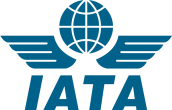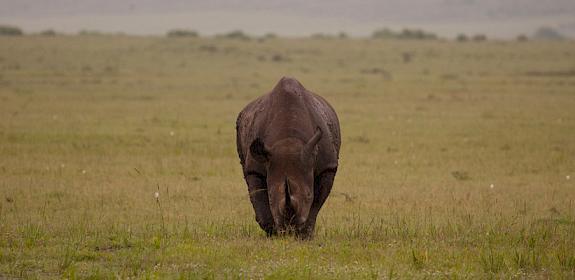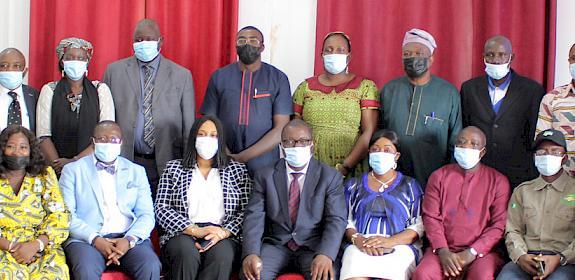ROUTES Partnership and Kenya Airways train transport staff to help curb wildlife trafficking
Nairobi, Kenya, March 1, 2018—To help detect and stop smugglers carrying ivory, rhino horn, and other wildlife products out of Kenya, the USAID Reducing Opportunities for Unlawful Transport of Endangered Species (ROUTES) Partnership today delivered a training workshop in Nairobi for airline transport staff on the key role they play in preventing the trafficking of wildlife. Cabin crew, ground handlers, cargo processors, and staff from regional airports participated in the interactive sessions.
First Lady of Kenya Margaret Kenyatta attended the morning sessions, alongside Robert F. Godec, the U.S. Ambassador to Kenya; Najib Balala, Cabinet Secretary Tourism and Wildlife; and Chris Oburu, Chief Administrative Secretary Transport and Infrastructure Development.
I applaud this initiative that stands out as an innovative measure that includes the global transportation systems to help break these illegal chains of unlawful transportation of endangered species
First Lady Kenyatta, during her opening speechROUTES, supported by the United States Agency for International Development (USAID), is a public-private partnership that brings together government agencies, the transportation and logistics industry, and international conservation, development and law enforcement organizations and donors to disrupt wildlife trafficking activities.
“Wildlife trafficking is one of the most prominent transnational organized crimes in the world, ranking along with drug, human, and arms trafficking in annual value,” said Ambassador Godec. “Wildlife traffickers exploit global transportation, threaten human health and security, and are driving some species to extinction.”
According to a recent ROUTES report analyzing wildlife trafficking in the air transport sector, Kenya serves as a significant transit point for poachers and traffickers supplying wildlife products to Asia. Jomo Kenyatta International Airport (JKIA) is the busiest airport in East and Central Africa and is a target for wildlife trafficking, particularly ivory trade. Kenyan authorities are proactive in addressing wildlife smuggling in JKIA, often seizing illegal products at the airport.
“Wildlife trafficking is a transportation-intensive activity and smugglers carrying illegal wildlife and wildlife products need to interact with airport and airline staff at multiple points during the journey,” said Michelle Owen, ROUTES Lead. “Increasing the ability of staff to identify and report suspicious activities linked to wildlife trafficking is crucial for stopping traffickers that abuse the transport sector.”
Many in the transportation sector are recognizing the need to take action against wildlife trafficking. Today’s ROUTES workshop taught airline employees how to recognize common wildlife trafficking techniques and provided information on how best to respond to and report wildlife trafficking incidents. Airport staff in Nairobi are now equipped with materials and resources that will help them protect Kenya’s natural heritage from smugglers and traffickers.
“Airline staff spend more time with passengers, their baggage, and cargo shipments than customs officers,” says Jon Godson, the International Air Transport Association’s Assistant Director, Aviation Environment. “They can provide a key source of intelligence for the enforcement agencies.”
The training in Nairobi was part of a series of training workshops that ROUTES will conduct for airport and airline staff this year at key wildlife trafficking hubs across Africa and Asia. ROUTES recently conducted training in Mozambique, and over the next few months, ROUTES will hold training sessions in Uganda, Malawi, Ethiopia, and Malaysia.
About the ROUTES Partnership

The USAID Reducing Opportunities for Unlawful Transport of Endangered Species (ROUTES) Partnership brings together transport and logistics companies, government agencies, development groups, law enforcement, conservation organisations and donors to disrupt wildlife trafficking activities, and forms a key element of the concerted international response to addressing wildlife poaching and associated criminal activities worldwide. Further information and resources can be found at www.routespartnership.org.
About USAID

The United States Agency for International Development (USAID) is responsible for the majority of overseas development assistance from the United States Government and works to end extreme poverty and promote resilient, democratic societies while advancing security and prosperity for America and the world
About IATA

IATA represents some 265 airlines comprising 83% of global air traffic. For more information, visit IATA.org or follow@IATA2press




